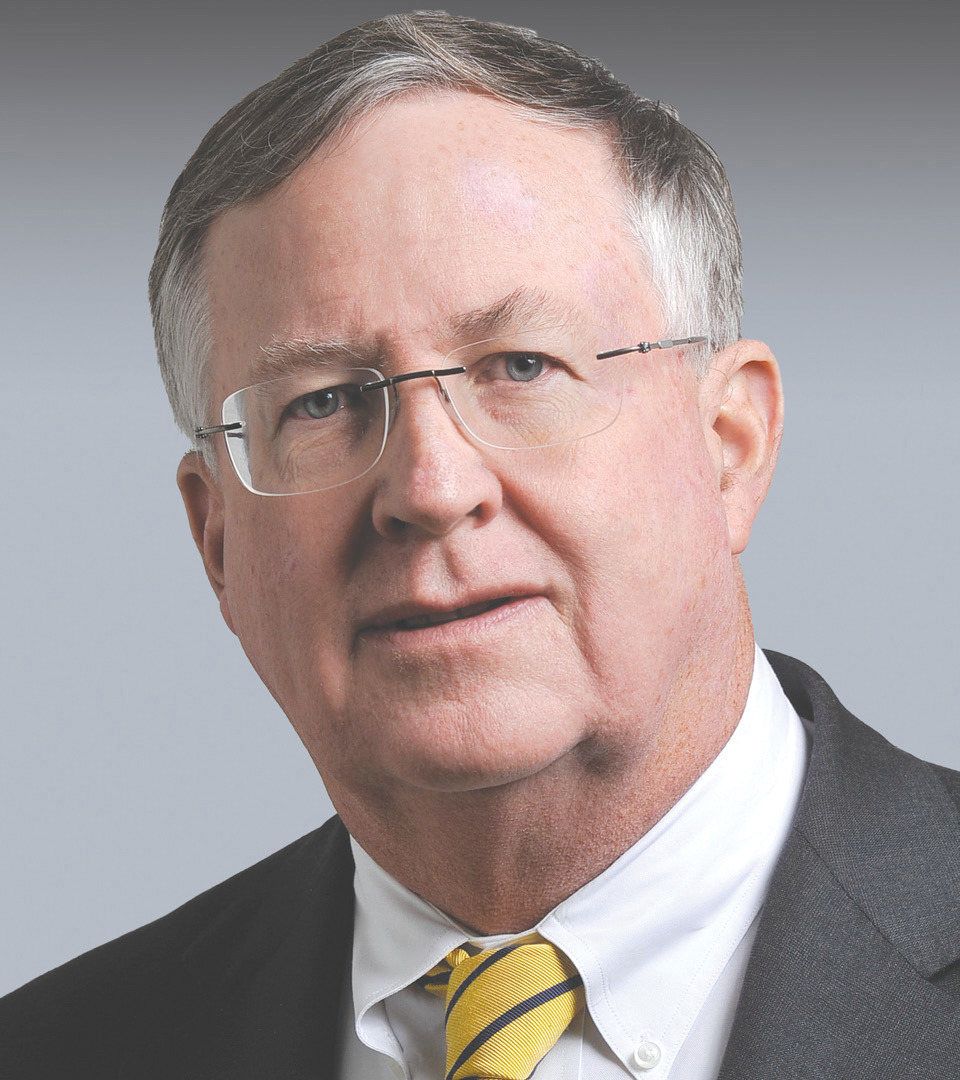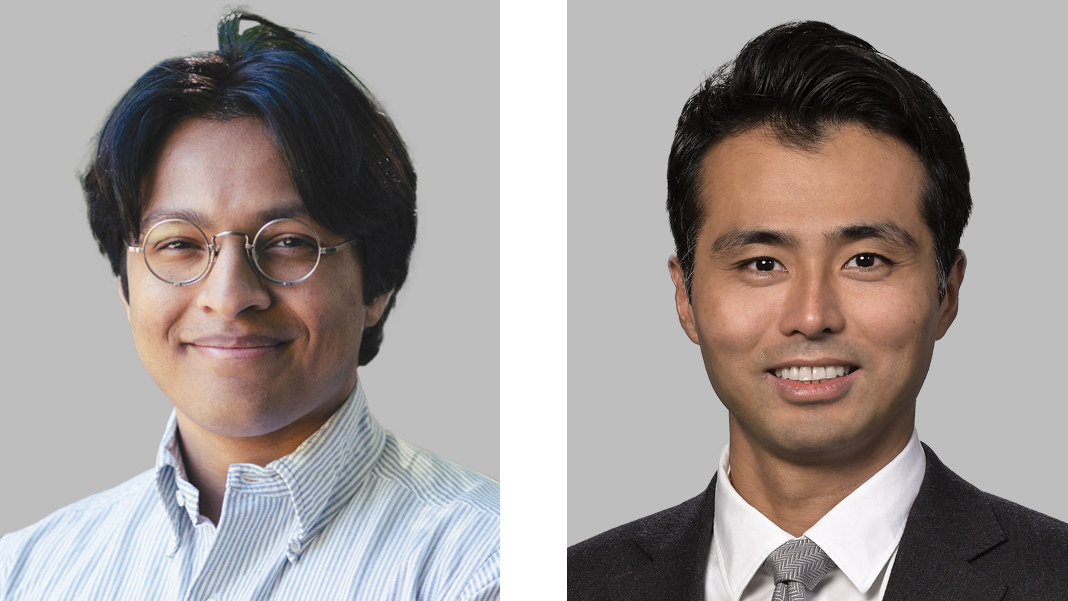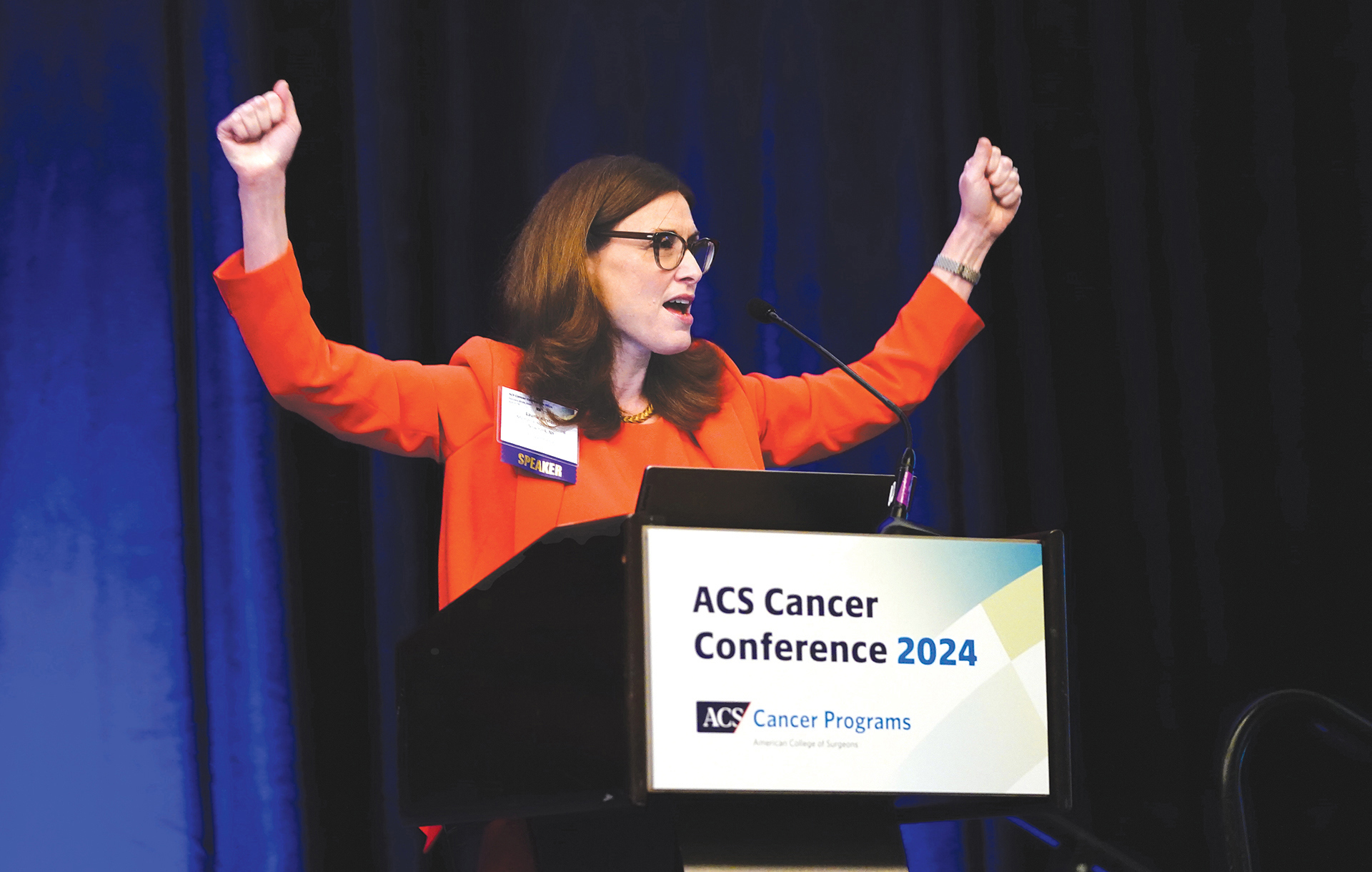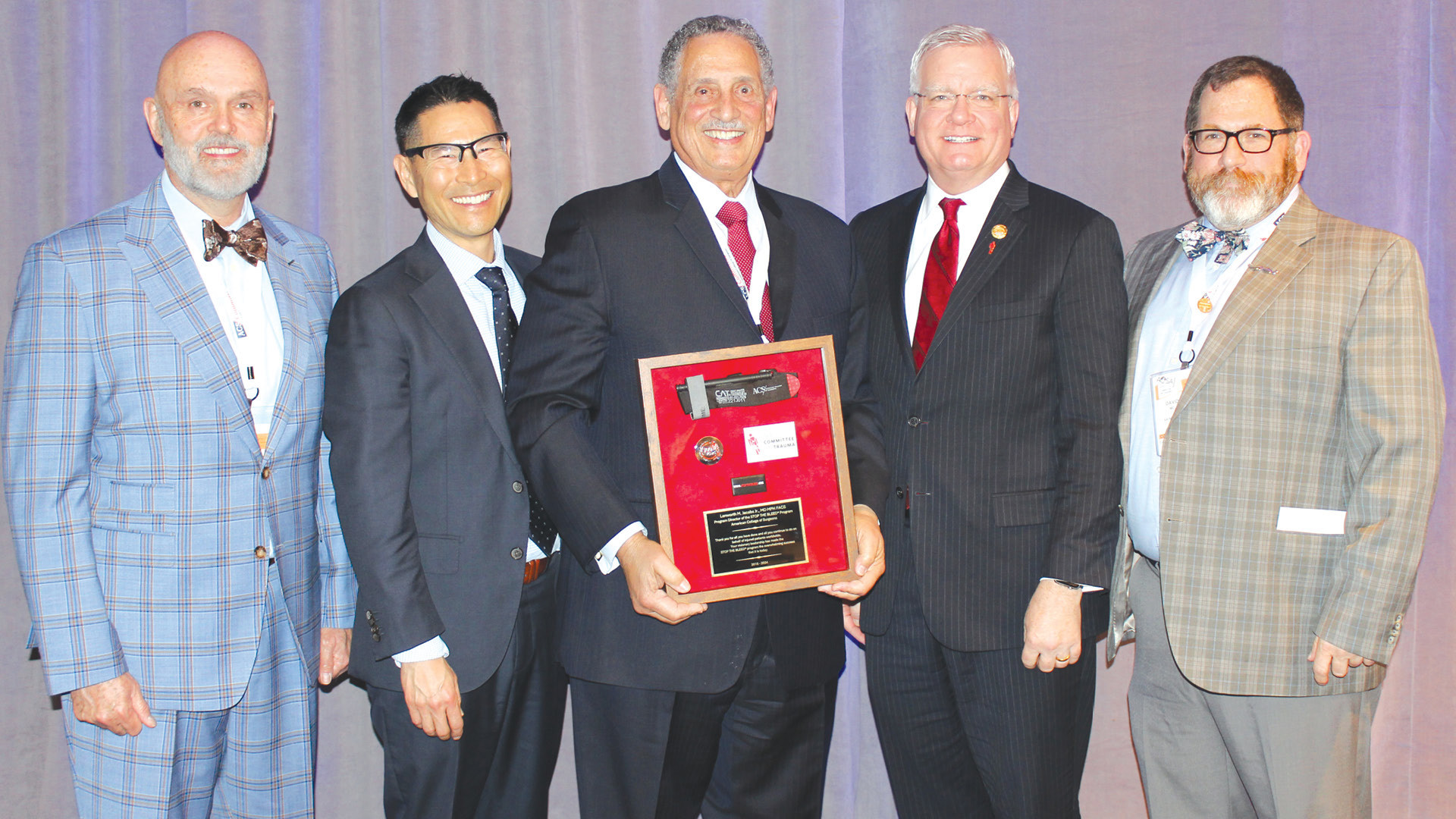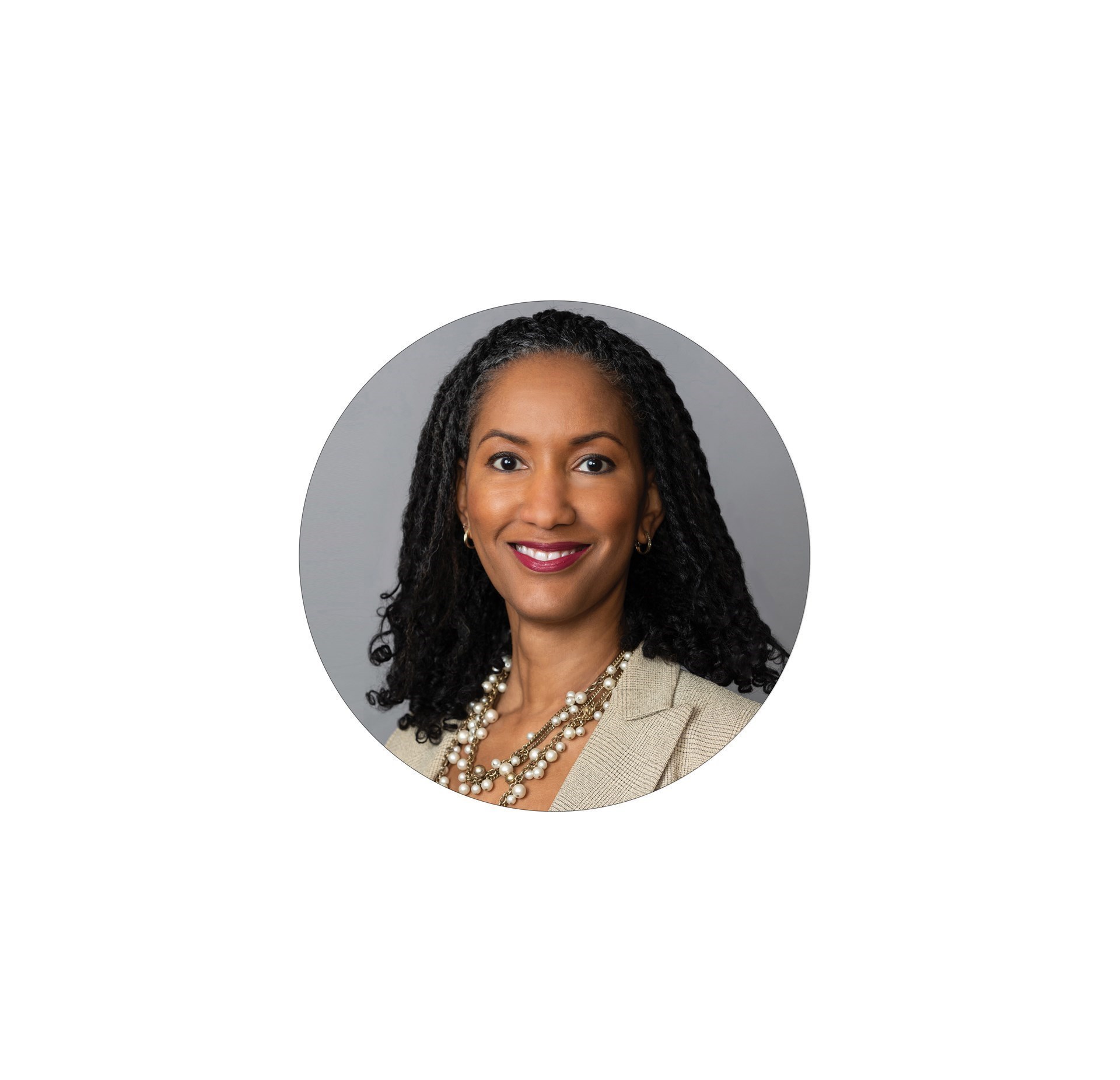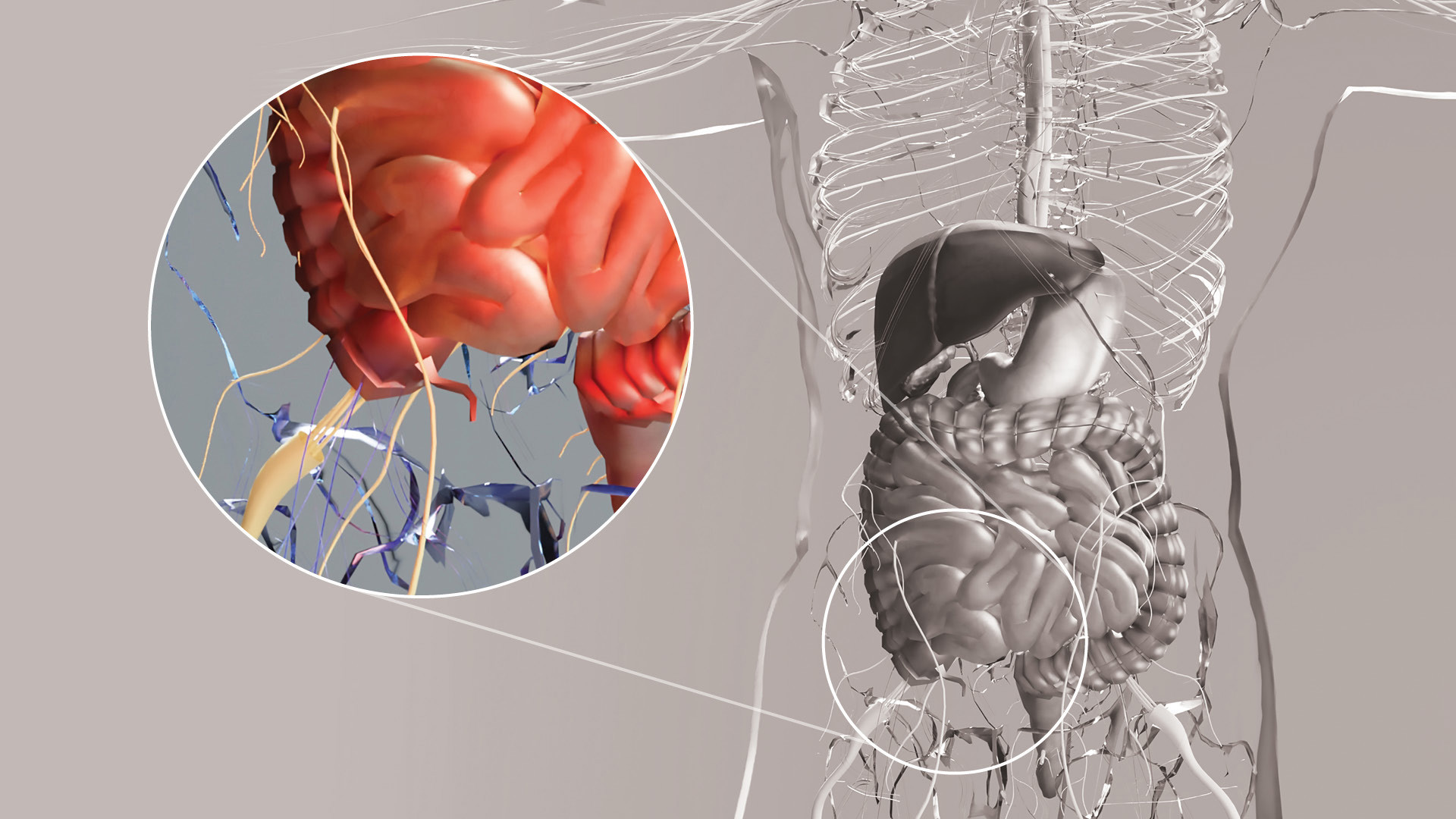It is impossible for even the most casually engaged citizen to avoid being fascinated as well as concerned over the future societal and scientific impact that the current artificial intelligence (AI) revolution will have on the world around us.
The lay governmental and scientific press are filled with daily exposés on its transformative power as well as its inherent dangers. Most relevant to our profession, in his recent book, The Coming Wave, Mustafa Suleyman proclaimed AI and genetic engineering will completely change the way medicine is taught, practiced, and studied in the future.
The exponential speed of AI development (currently making a mockery of Moore’s Law), as well as its remarkable ability to self-learn, positions this technology to be a real Darwinian force of societal, political, and scientific evolution. The positive effects of this in the field of medicine are inestimable. The instant availability of big data, the useful power of its ever-evolving algorithms, and its access to anyone with a smartphone will have positive and transformative value in the way we learn our art, treat our patients, carry out research, engage our medical deserts, reduce medical disparities, and improve societal health.
Similarly, it is reasonable to predict that current and future evolutions in genome understanding and genetic engineering will soon become mainstream disease treatment modalities, rapidly making much of our current traditional care obsolete. Breakthrough genetic-based treatments of sickle cell disease (recently approved by the U.S. Food and Drug Administration),1 cystic fibrosis, HIV, and many cancers are evolving every day. I frequently tell my medical students that the future of medicine is in the genes. I believe that will be proven correct.
Inherent in these positive attributes is an equally dystopian side to this ever-evolving technology. Malevolent and sinister forces can easily harness these powerful, influencing information sources to create destabilizing scientific, political, and societal harm on a grand scale. Gordon Crovitz, a co-chief executive of NewsGuard, was recently quoted in a New York Times article saying that AI “is going to be the most powerful tool for spreading misinformation that has ever been on the Internet” and that “Crafting a new false narrative can now be done at a dramatic scale.”2
Similarly concerning, a recent report from Georgetown University’s Center for Security and Emerging Technology stated that new AI systems called generative language models have made progress in Chatbot self-generation of increasingly credible and persuasive misinformation.3
It is not too much of a futuristic stretch to see how these uncontrolled forces can lead us into a 1984 Orwellian world of multiple “ministries,” creating confusion, mistrust, and chaos. This could have a devastatingly damaging effect on the practice of medicine. Significant adverse effects could include loss of patient confidence, mistreatment, avoidance of therapy, contamination of research, degradation of data, and—through cyberattacks—complete disruption of the Health Insurance Portability and Accountability Act sanctity of personal medical information. These and other unforeseen effects could ultimately destroy the preeminent foundational characteristic upon which the entire practice of medicine depends—trust. Without trust, our system collapses.
I recently spotted a bumper sticker that said, “Let’s Make Orwell Fiction Again.” Hopefully, that is more comedic relief than a prescient warning of things to come. Similarly, the rapid development, progressively reduced costs, and widespread availability of DNA sequencing pose a significant danger to society in the wrong hands. It may be possible for rogue forces to synthesize DNA capable of creating dangerous and possibly destabilizing ultra-transmissible superbugs and powerful diseases.
Like atomic energy, we have created forces that can serve or damage us greatly. We may very well be at a true Oppenheimer moment. How we as a society and a profession hedge against the possible malevolent risks of these powerful technologies without throttling their enormous benefits is one of the sentinel questions of our times. Unfortunately, this conundrum is complicated by the fact that only some of the current developers of these systems completely understand or can predict their future capabilities.
What should be clear to all of us, however, is that a watch-and-see, laissez-faire, or—worse—a dismissive approach to these technologies exposes our profession as well as our society to potential catastrophic damage from well-intention but sophomoric mistakes of both omission as well as commission.
The proper adoption as well as risk mitigation of these technologies will be an ongoing Herculean intellectual, physical, and monetary effort. Multiple governmental, academic, and technological professional agencies and societies will have to rapidly become facile and dedicated to this task. Partial engagement or maladroit approaches will not only result in missed opportunities but could harm our profession and society in general.
Fortunately for the profession of surgery, the ACS stands on the wall of truth as a vanguard against misinformation and malevolent interests. The foundational mission of our great College is ensuring the integrity of surgical data, the veracity of the resultant information, and wisdom in its application.
Consistent with this charge, through the visionary leadership over the last decade, the College has significantly invested in the massive accumulation of dependable data, world-renown talent, and internationally recognized quality and educational programs, making it the accepted world’s imprimatur of surgical truth and professional standards. However, these technologies’ current and rapidly evolving power could pose significant existential challenges as the College attempts to lead the surgical profession through these unchartered seas. The future quality and safety of our art will depend on the clarity of the ACS vision and the quality of its debates, as well as the courage of its leadership.
The College saved our great profession at its inception years ago from the chaos of misinformation and the ill effects of unscrupulous therapies. I believe it can and will do it again. Unfortunately, time is not on our side. We have no time to lose. The future is now!

